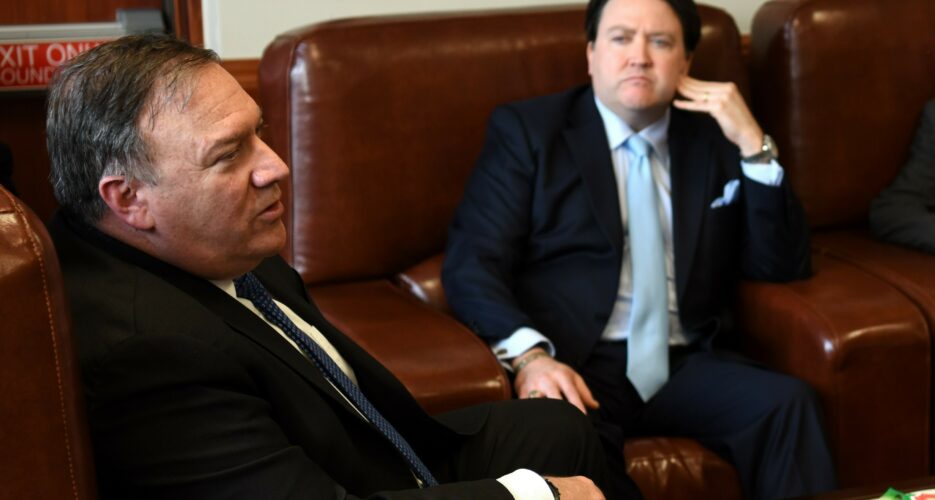U.S. Secretary of State Mike Pompeo departed for Pyongyang early Thursday morning, Agence France-Presse reported.
U.S. Secretary of State Mike Pompeo departed for Pyongyang early Thursday morning, Agence France-Presse reported.
Become a member for less
than $5.75 per week.
Unlimited access to all of NK News: reporting, investigations, analysis
The NK News Daily Update, an email newsletter to keep you in the loop
Searchable archive of all content, photo galleries, special columns
Contact NK News reporters with tips or requests for reporting
Get unlimited access to all NK News content, including original reporting, investigations, and analyses by our team of DPRK experts.
Subscribe now
All major cards accepted. No commitments – you can cancel any time.












